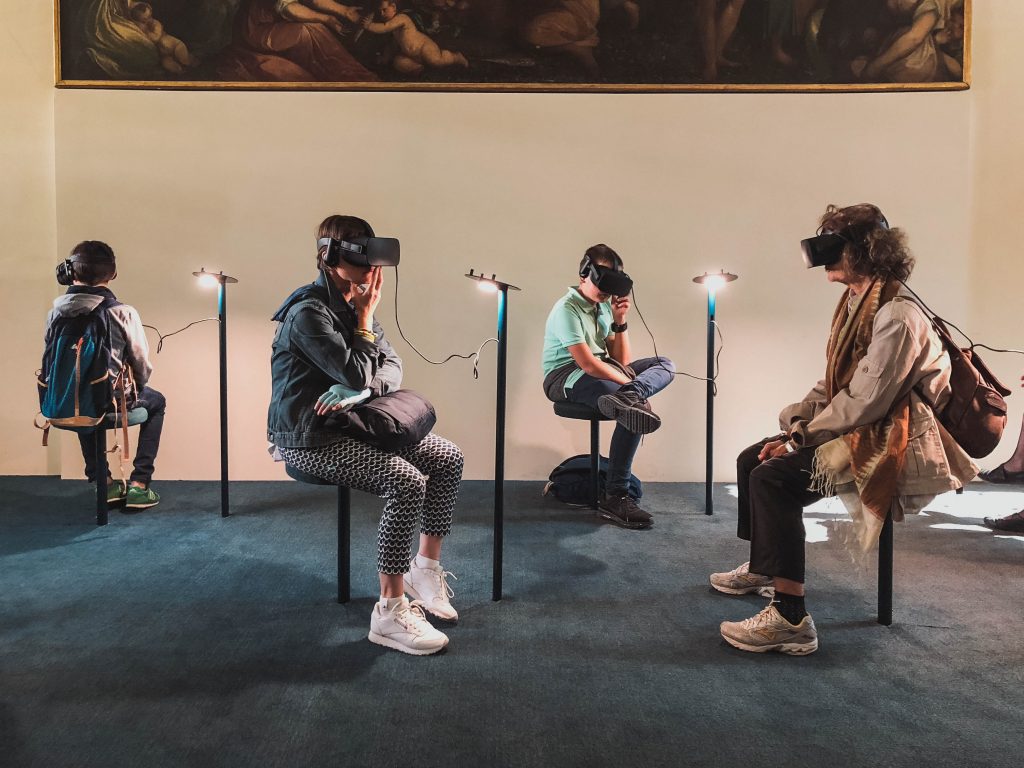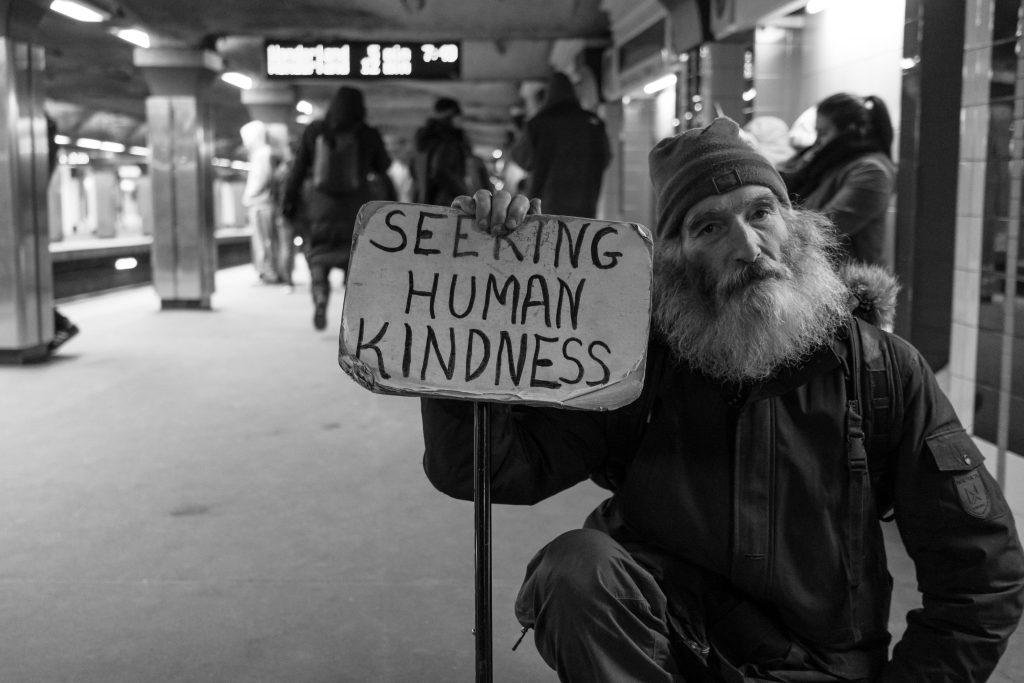|
Enjoy
Getting your Trinity Audio player ready...
|
Being introverted is not the same as being lonely. Despite living most of my adult life alone, withdrawn from all social settings, I now realise this is not healthy. The digital age has been a gift to introverts like me. There are more ways than ever to tune out from the world and enjoy our presence. Yet by relying on more escapes, does disconnecting from people go further than just being introverted? Introverts may already be overlooking their loneliness. The condition reaches points deeper than mere social isolation- disconnection from people and reality. This article hopes to open the discussion about loneliness and make serial introverts question if a solitary life is really what they want. I do not mean to toxify the desire for alone time but to remind everyone about the need for human love and companionship in a fast-moving world. Loneliness is a deep issue, transcending personality types. The duty falls on us to help each other discover meaning through friends, family, neighbours, colleagues, social groups and more.
Today’s aspiration for an introverted life:
The introverted life was always the dream. As someone who found no enjoyment in social gatherings, a life alone with all the modern luxuries appeared to be the life. I thought for once and for all I could escape all the social pressures and childhood traumas and find tranquillity alone, living according to my wants and needs. I am sure others will relate when they look at all the social drama online and offline, taking respite: “Glad I’m not the one caught up in that mess. Why do people even bother?”. In many ways, being an introvert is sensible, having no time for social drama and contentment for only a few friends and family. Especially seeing a world brewing with people’s arrogance and pettiness, there would be no reason to step off the lonely path through life. The introvert may even dream about the time they can finally be set free from people- to leave the madness of the world and live without any knowing presence.
Today’s digital age brings us closer to realising an introverted dream. We no longer have to imagine what life would be like as our favourite heroes, celebrities and personalities as their lives are readily viewable online. There exists an infinite selection of movies and TV shows to immediately cast and enjoy. The plethora of content has reached such levels it is possible to live life vicariously through these pictured lives. The video game sphere has also stretched to incredible heights and made fantasy worlds an ever-closer thing, almost real to the eye and in some instances even liveable through virtual reality. The modern introverted haven from real-world social interaction gets further treatment through the revolution of online shopping. With a simple search and tap of the button, I the single individual can have all my needs and desires fulfilled without setting foot outside- from clothes, meals and just about anything. There is the world of social media too where you can follow and join discussions without being your normal self. As time moves on and technology grows smarter, the utopia of self-driving cars and self-servicing robots moves closer. It could be said there is no better time in history than now being alone. The modern digital world is convenient and easily favourable, especially for introverts like me.

Growing into loneliness:
In the rush for more social exclusion, however, we need to consider the threat of loneliness. Age naturally brings with it increasing responsibilities and expectations in a way there is less time to be the ‘social butterfly’. Many of us fall deeper into the Western individualistic culture; working through the week and leaving family and friendship gatherings to the next forced, awkward moment. Before you know it, the social circle has closed, leaving just a few friends and many vanished figures.
Only a few of us will be brave to ask the looming question: I’m I lonely? For the introvert, it would appear there is no issue. The introvert will not be sorry for being socially withdrawn- the withdrawal means choosing comfort, being able to live away from social pressure and securing one’s identity through smaller, enclosed moments. It is also easy to accept there was no severe breakage with people, only life’s course moving relationships apart that were never meant to be anything more meaningful.
But as one chooses to be more ‘introverted’, moving away from people and living deeper in individual luxuries, a gloomy picture emerges. The only presence you feel are the distant figures in your life who have shamefully kept distant, mostly for no reason but the fear of social commitment. There is no one to put an arm around or pat you on your back; to tell you to keep going; to investigate why you feel the way you do. The joy from finally accomplishing what you wanted or taking new big steps in life (going for your first interview, getting your first car, losing weight, passing an exam) falls flat without anyone there pushing you on. All you hear is your rabbling, monotonous voice which no amount of individual luxury brings ease. Here arises a great paradox- the ‘relief’ found in withdrawing from the otherness of other people, pulls us further along a lonely path. In a complicated world, a begrudged existence alone reminds me, that loneliness could be worse and is not made even for serial introverts.

The Loneliness ‘Epidemic’
It is safe to say humans are not made to be lonely. Many headlines report record numbers reporting feeling lonely and tied into the equally spiralling numbers expressing anxiety and depression. Social psychologists define loneliness as the gap between the social connections we would like and what we feel in our experience. The issue in the UK has become so severe a committee for loneliness has been set up to investigate and try to tackle the problem. There is little doubt loneliness does not just affect someone’s mental health but also physical. The 2022 Tackling loneliness evidence review by the Department for Digital, Culture, Media and Sport (DCMS) Loneliness Evidence Group says loneliness is associated with a range of mental health problems, including anxiety, depression, psychosis and suicidal thoughts. There’s also an association between loneliness, cognitive decline and the onset of dementia. There is no doubting the feeling of loneliness has a serious toll on not just someone’s mental health but also physical.
The point is not to simply say introverts must become extroverts but to acknowledge the importance of minimal, meaningful human connection. The wide literature point toward loneliness being essentially a subjective experience- it encompasses symptoms and causes ranging from person to person. One person’s lonely experience is unlikely to match someone else’s experience when taking into factor their culture, upbringing, psyches and more. Ami Rockach (2004 cited in Rokach, 2018:60), a leading clinical psychologist in this discussion, goes as far as to conclude that “to be human is to be able to experience loneliness…a recessive, non-dominant trait experienced under the ‘right conditions”. Hence, Esteban Ortiz-Ospina (2019), along with other psychologists, question today’s loneliness ‘epidemic’, stressing aloneness does not necessarily mean loneliness.
Nonetheless, our subjective loneliness appears to still be held by an objective importance of people connection. The perceptions we build about ourselves, how we engage with the outside world and heal ourselves out of struggle, appear reliant on who and why people associate with us. Even comparative studies like Hansen and Slagsvold (2015) on loneliness being higher in Eastern European collectivist culture versus Western individualistic European culture, seem to undermine the people factor (as they also note their study does not reach into assessing people’s ‘actual contact’ with mentioned family, friends etc.) The National Institute of Ageing reminds us loneliness, along with biology and physical health, also depends on the quality of human contact. In all, what remains clear is that loneliness concerns people and transcends beyond social isolation, into questions about our relationship with the outside world.

Loneliness is deeper than social isolation:
Loneliness shows introverts burrowing deeper into a lonely life is no solution. Jeremy Noble (2021) unpacks loneliness and helps show how the condition concerns the entire human psyche, affected by people, time and place. He outlines three conditions of loneliness. There is psychological or interpersonal loneliness. While we can all feel lonely from time to time, apathy and distress over a longer period turn more personal. This is where one finds no escape from a mind cluttered with lingering countless questions about their lonely presence: “Do I have a friend? Do I have someone I can tell my troubles to?”. Noble importantly recognises loneliness often goes further, digging into the soul and resulting in existential loneliness. The feeling of loneliness turns complicated as it is not just ‘felt’ but becomes part of one’s intuition. The outlook on people and life brings a revolving circle of answered questions “Do I fit into the universe? Does my life have any meaning, purpose, weight, valence, mission?”. Finally, he notes third-type- societal loneliness. It is safe to say humans seek attachment for the sake of comfort and security. We search for those who are familiar to use or at least building on what is common to remain in communities and build on friendships. Unsurprisingly, when people are denied from holding an identity, an attachment to their race, culture or gender, they feel lost; taken long and far enough feeling ostracized means deep loneliness. These last two senses of loneliness appear particularly relevant in today’s postmodernist society where principles and identities appear broken and interspersed. In short, loneliness clearly has a deep-rooted effect on the human condition, beyond the social isolation introverts think they want. Being truly lonely sees people trapped in an unresolved period of existence, finding no identity, purpose or kinship.
Staying introverted and avoiding loneliness
The introvert may now see people can be the cause and the solution to loneliness. The lonely island they once sought is not so peaceful with a heart that yearns for companionship. The true lonely place is the dark place, not easy for any human soul. Total isolation endangers people to become only further lost in the nebula; to wander space with the troubled mind and depriving themselves of the love that exists in the hearts of friends, family and potential strangers. Alone time without a cause means it serves no longer as a reward or a moment of contemplation. Instead, the individual is left to dwindle into emptiness and endless desires, detaching ourselves from making an impact on the real world. This world is no utopia- we all have flaws, weaknesses, personal troubles and traumas that make life difficult. We must therefore realise that interactions led by compassion, friendship and kindness will always go far in a troubled world aching for community and peace. I am reminded of the powerful quote from the movie Green Book:
“The world is full of lonely people afraid to make the first move.”
Tony lip, green book
As Dr Alok Kanojia discusses, those feeling lonely in today’s digital world must look to build bridges to people’s lonely islands. It falls on each one of us to remove the mask we so often put on and approach others we find friendly. By seizing fine moments to talk more intimately i.e., about likes or dislikes, it becomes possible for you and the other person to understand each other more personally, more authentically. I will stop here and leave the discussion about potential treatments for future articles and experts within the field. In sum, loneliness is a complicated, personal condition that begs us to question how and why we may engage with others to obtain fulfilment.

Conclusion:
In summary, being introverted should not be confused with being lonely. While many introverts aspire to escape to a lonely island, it is worth contemplating the harm disconnecting from people entirely can have on our mental and physical wellbeing. The real darkness is loneliness, a void someone descends into when they find no connection to the people and world around them. Withdrawing further away serves no solution- the human heart desires to love and care, especially in a world with so much trouble. The warmth we all seek falls on us taking action- to find family and respectful strangers and build bridges to their lonely island. A small step can go a long way to reminding the soul we all belong and possess goodness in this world.
